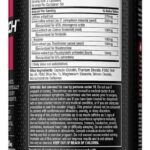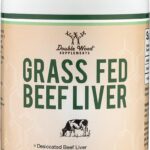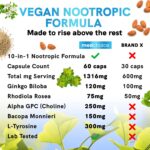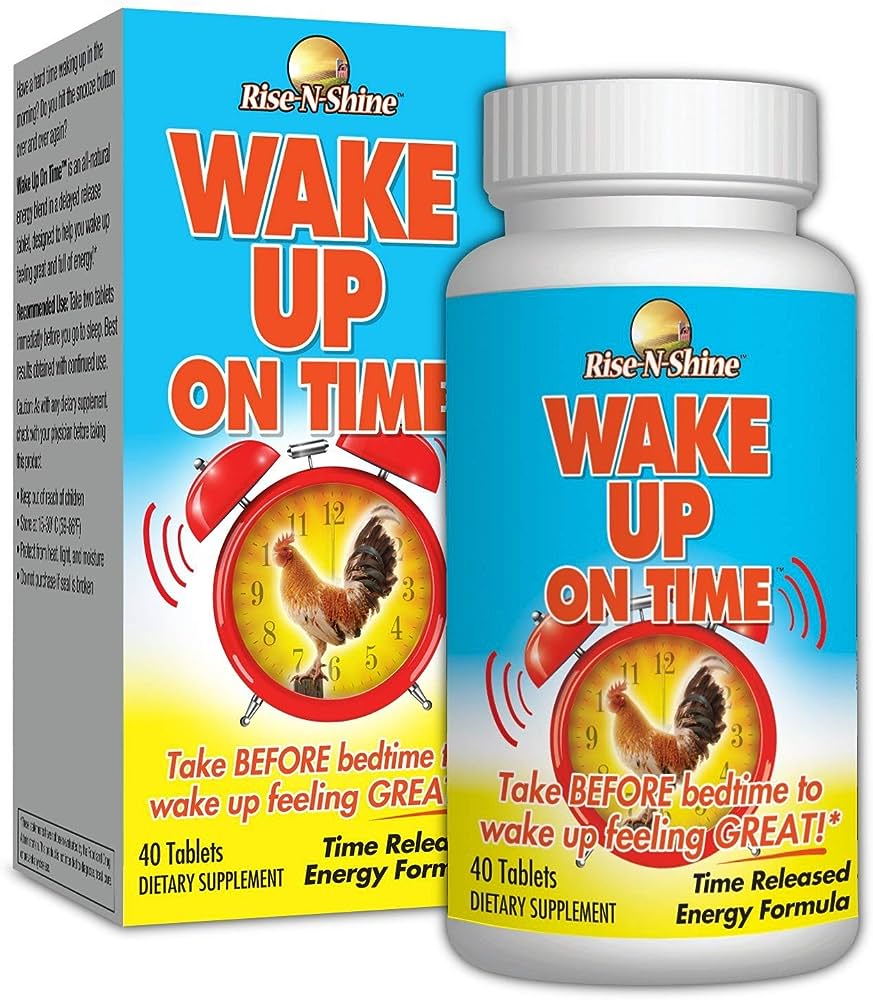Have you ever been skeptical about the claims made by health supplement manufacturers? With so many different products on the market, it can be hard to know which ones actually deliver on their promises. Thankfully, there are ways to verify these claims and make sure you’re getting a product that is safe and effective. In this article, we’ll dive into some tips and tricks on how to do just that, giving you the tools you need to make informed decisions about your health and wellness.
It’s important to remember that not all health supplement manufacturers are created equal. While some may have a solid reputation and adhere to strict quality control measures, others may make exaggerated claims or use questionable ingredients in their products. One way to verify the claims made by these manufacturers is to do your research. Look for reviews from reputable sources, such as scientific studies or trusted health organizations, to see if there is any evidence to support the claims being made.
Another way to verify the claims made by health supplement manufacturers is to check for third-party testing or certifications. These independent organizations evaluate the quality and safety of products and can help you determine if a manufacturer’s claims are legitimate. Look for seals or labels from organizations like the United States Pharmacopeia (USP) or ConsumerLab.com, as these indicate that a product has met certain standards.
In addition to research and third-party testing, it’s also important to look for transparency from health supplement manufacturers. Legitimate manufacturers will provide detailed information about their products, including the ingredients used and the scientific evidence supporting their claims. They should also be upfront about any potential side effects or interactions with other medications. By taking the time to verify the claims made by health supplement manufacturers, you can ensure that you’re making informed decisions about the products you’re putting in your body. So, let’s dive into the article and learn more about how to do just that.
Understanding Health Supplement Claims
What are health supplement claims?
Health supplement claims are statements made by manufacturers or marketers of health supplements regarding the benefits or effects of their products on the body. These claims may include assertions about improving overall health, boosting energy levels, enhancing cognitive function, supporting weight loss, or reducing the risk of certain diseases. Health supplement claims are often designed to attract consumers and convince them that the product will provide specific health benefits.
Why should you verify health supplement claims?
Verifying health supplement claims is crucial for several reasons. First, it ensures that you are making informed decisions about your health and well-being. By scrutinizing the claims made by manufacturers, you can determine if the product is suitable for your needs and whether it delivers the promised benefits. Second, verifying claims helps protect you from potential harm. Some health supplements may contain ingredients that can interact with medications or cause adverse reactions. By verifying claims, you can identify potential risks and make safer choices. Lastly, verifying health supplement claims promotes transparency in the industry, leading to higher standards and better quality products.
The importance of transparency in the health supplement industry
Transparency is key to ensuring the safety and efficacy of health supplements. A lack of transparency can result in misleading or exaggerated claims, leading consumers to purchase products that may not provide the desired health benefits. It is essential for manufacturers to provide accurate information about their products, including the ingredients used, their concentrations, and the scientific evidence supporting their claims. Transparent labeling and clear communication help consumers make informed decisions and build trust in the health supplement industry.
Challenges in verifying health supplement claims
Verifying health supplement claims can be challenging due to several factors. One major challenge is the lack of regulation and oversight in the industry. Unlike pharmaceutical drugs, health supplements are subject to less rigorous testing and regulation. This makes it difficult for consumers to assess the credibility and accuracy of the claims made by manufacturers. Additionally, conflicting research findings and limited scientific studies on specific ingredients can create confusion and uncertainty. The wide variety of health supplements available in the market also makes it challenging to evaluate each product’s claims individually. However, despite these challenges, there are several strategies you can employ to verify health supplement claims effectively.
Researching Health Supplement Manufacturers
Identifying reputable health supplement manufacturers
To verify health supplement claims, start by identifying reputable manufacturers. Look for well-established brands with a history of producing high-quality products. Reputable manufacturers follow strict quality control measures, adhere to good manufacturing practices, and prioritize consumer safety. They are more likely to invest in research and development and conduct rigorous testing to support their claims.
Checking manufacturer credentials and certifications
Check if the manufacturer has the necessary credentials and certifications. Look for certifications such as Good Manufacturing Practice (GMP), which ensures that the manufacturer follows specific guidelines for quality control. Manufacturers that have undergone third-party audits and received certifications demonstrate their commitment to producing safe and effective health supplements.
Reviewing manufacturer’s reputation and track record
Research the manufacturer’s reputation and track record in the industry. Look for any history of lawsuits, recalls, or negative reviews. A manufacturer with a solid reputation is more likely to be trustworthy and reliable. Reading customer testimonials and reviews can provide insights into the manufacturer’s product quality and customer satisfaction.
Analyzing Health Supplement Ingredients
Understanding the listed ingredients
Carefully examine the list of ingredients in a health supplement. The ingredients should be clearly labeled and easy to understand. Take note of any ingredients that you may be allergic to or have had adverse reactions to in the past. If an ingredient is unfamiliar or difficult to pronounce, conduct further research to understand its purpose and potential effects on your health.
Researching the efficacy of ingredients
Once you have identified the ingredients, research their efficacy. Look for scientific studies or research articles that support the claimed benefits of each ingredient. Be cautious of claims that solely rely on anecdotal evidence or “traditional” uses of certain ingredients. Reliable sources such as peer-reviewed journals or reputable health organizations can provide unbiased information on the effectiveness of specific ingredients.
Identifying potential side effects or interactions
While researching ingredient efficacy, also consider potential side effects or interactions. Some ingredients may have adverse effects or interact with medications you are currently taking. Consult with a healthcare professional if you have any concerns or questions about potential interactions or side effects. Being aware of these risks allows you to make an informed decision regarding the use of a health supplement.
Evaluating Scientific Studies and Research
Seeking scientific studies supporting the claims
Look for scientific studies that support the claims made by the health supplement manufacturer. Scientific studies provide valuable evidence and help verify the effectiveness of the product. Check if the manufacturer provides references to these studies or research articles. Evaluate the credibility of the studies by considering factors such as sample size, study design, and the reputation of the research institution or journal.
Evaluating the quality and credibility of studies
Not all scientific studies are created equal. Evaluate the quality and credibility of the studies supporting the health supplement claims. Studies with larger sample sizes, randomized controlled trials, and double-blind studies are generally considered more reliable. Be cautious of studies funded by the manufacturer or studies conducted on animals as they may not accurately reflect the product’s effects on humans.
Considering conflicting research findings
In some cases, you may come across conflicting research findings on a specific ingredient or health claim. This can be due to variations in study design, sample sizes, or the specific population studied. In such situations, consider the overall weight of evidence and consult with healthcare professionals or experts for their opinions. It is important to make an informed decision based on the most reliable and up-to-date research available.
Consulting Health Professionals
Seeking advice from medical experts
To further verify health supplement claims, seek advice from medical experts such as doctors or pharmacists. They can provide insights into the safety and efficacy of the health supplement based on your individual health profile and any pre-existing conditions you may have. Medical professionals can also help identify potential interactions with medications you are taking and provide guidance on appropriate dosage.
Getting a second opinion from healthcare professionals
If you are unsure about a specific health supplement or its claims, consider getting a second opinion from another healthcare professional. Different professionals may have varying perspectives and experiences, providing you with a more comprehensive understanding of the product and its potential benefits or risks.
Considering specialized opinions from relevant specialists
In some cases, seeking specialized opinions from relevant specialists may be necessary. For example, if you are considering a health supplement for a specific health condition, consulting with a specialist in that area can provide valuable insights. These specialists will have in-depth knowledge about the specific condition and can advise on the suitability and effectiveness of certain health supplements.
Checking Regulatory Approvals and Certifications
Verifying FDA or regulatory approvals
Check if the health supplement has obtained approvals from regulatory bodies such as the US Food and Drug Administration (FDA). While FDA approval is not required for all health supplements, it can provide an extra layer of confidence in the product’s safety and quality. However, be aware that FDA approval does not guarantee effectiveness or verify the accuracy of specific health claims.
Checking for third-party certifications
Look for health supplements that have obtained third-party certifications. These certifications, such as those from independent organizations like NSF International or US Pharmacopeia, indicate that the product has undergone testing by an unbiased third party and meets specific quality and safety standards. Third-party certifications can provide added assurance of a product’s reliability and legitimacy.
Understanding the limitations of certifications
It is essential to understand the limitations of certifications. While certifications indicate that a product meets certain quality criteria, they do not necessarily validate specific health claims. Manufacturers may still make unsupported claims even if their product has obtained certifications. Therefore, it is still important to conduct thorough research and consult with healthcare professionals to validate these claims.
Customer Reviews and Feedback
Considering customer reviews and testimonials
Customer reviews and testimonials can provide insights into the experiences of other consumers who have used the health supplement. Read both positive and negative reviews to get a balanced perspective. However, be cautious of fake reviews or testimonials that may be biased or manipulated. Look for reputable review platforms or websites with a large number of genuine customer reviews.
Checking reputable review platforms or websites
Check reviews on reputable platforms or websites that specialize in health supplements. These platforms often have guidelines and verification processes to ensure the authenticity of reviews. Look for platforms that encourage transparency and allow for honest feedback from consumers. Consider a combination of expert opinions and customer reviews for a more comprehensive understanding of a health supplement’s efficacy.
Analyzing overall customer satisfaction
Analyze the overall customer satisfaction with the health supplement. Look for trends or patterns in customer reviews that indicate whether the product consistently delivers the claimed benefits. Consider factors such as the number of positive reviews, the frequency of negative reviews, and the overall rating of the product. However, remember that individual experiences may vary, and it is essential to make decisions based on your own research and needs.
Investigating Marketing and Advertising Claims
Spotting misleading or exaggerated claims
Be vigilant and critically analyze marketing and advertising claims made by health supplement manufacturers. Spot common tactics used to create misleading or exaggerated claims, such as the use of flashy language, before and after pictures, or claims that are too good to be true. Manufacturers may use these tactics to capture attention and convince consumers to purchase their products, even if the claims are not backed by evidence.
Understanding legal limitations on advertising
Understand that there are legal limitations on advertising claims for health supplements. Manufacturers are prohibited from making false or misleading statements about their products. However, the regulatory oversight may not be as stringent as for pharmaceutical drugs. Familiarize yourself with the regulations in your country and report any suspicious or misleading claims to the appropriate regulatory authorities.
Evaluating supporting evidence provided
When evaluating advertising claims, examine the supporting evidence provided by the manufacturer. Look for references to scientific studies, clinical trials, or testimonials that support the claims. Verify the credibility and relevance of the evidence and consider whether it aligns with other research or expert opinions. Be cautious of claims that lack supporting evidence or rely solely on subjective anecdotes.
Considering Expert Opinions and Recommendations
Seeking advice from healthcare professionals
As mentioned earlier, seeking advice from healthcare professionals is crucial when verifying health supplement claims. Consult with doctors, pharmacists, or other healthcare professionals who can provide evidence-based insights and personalized recommendations based on your specific needs and health conditions. They can help you decipher complex scientific information and guide you towards safe and effective health supplement choices.
Exploring expert opinions and recommendations
In addition to consulting with healthcare professionals, explore expert opinions and recommendations from reputable sources. Read articles or watch videos from experts in the field of nutrition, wellness, or the specific health condition you are considering the health supplement for. Trusted health publications and websites often feature expert opinions and recommendations that can help you make more informed decisions.
Considering trusted health publications
Consider the recommendations and guidance provided by trusted health publications. These publications often review and analyze health supplements based on scientific evidence and expert opinions. Look for publications that are known for their reliability, impartiality, and adherence to journalistic standards. However, remember to still conduct your own research and consult with healthcare professionals to validate these recommendations.
Conclusion
In conclusion, it is crucial to verify the claims made by health supplement manufacturers before incorporating them into your wellness routine. By understanding health supplement claims, researching manufacturers, analyzing ingredient efficacy, evaluating scientific studies, consulting healthcare professionals, checking regulatory approvals, considering customer reviews, investigating advertising claims, and seeking expert opinions, you can make well-informed decisions for your well-being. Verification of health supplement claims promotes transparency, protects consumers, and ensures the safety and effectiveness of the products you choose to support your health. Remember to prioritize your health and take control of your well-being by being an informed consumer in the health supplement market.











